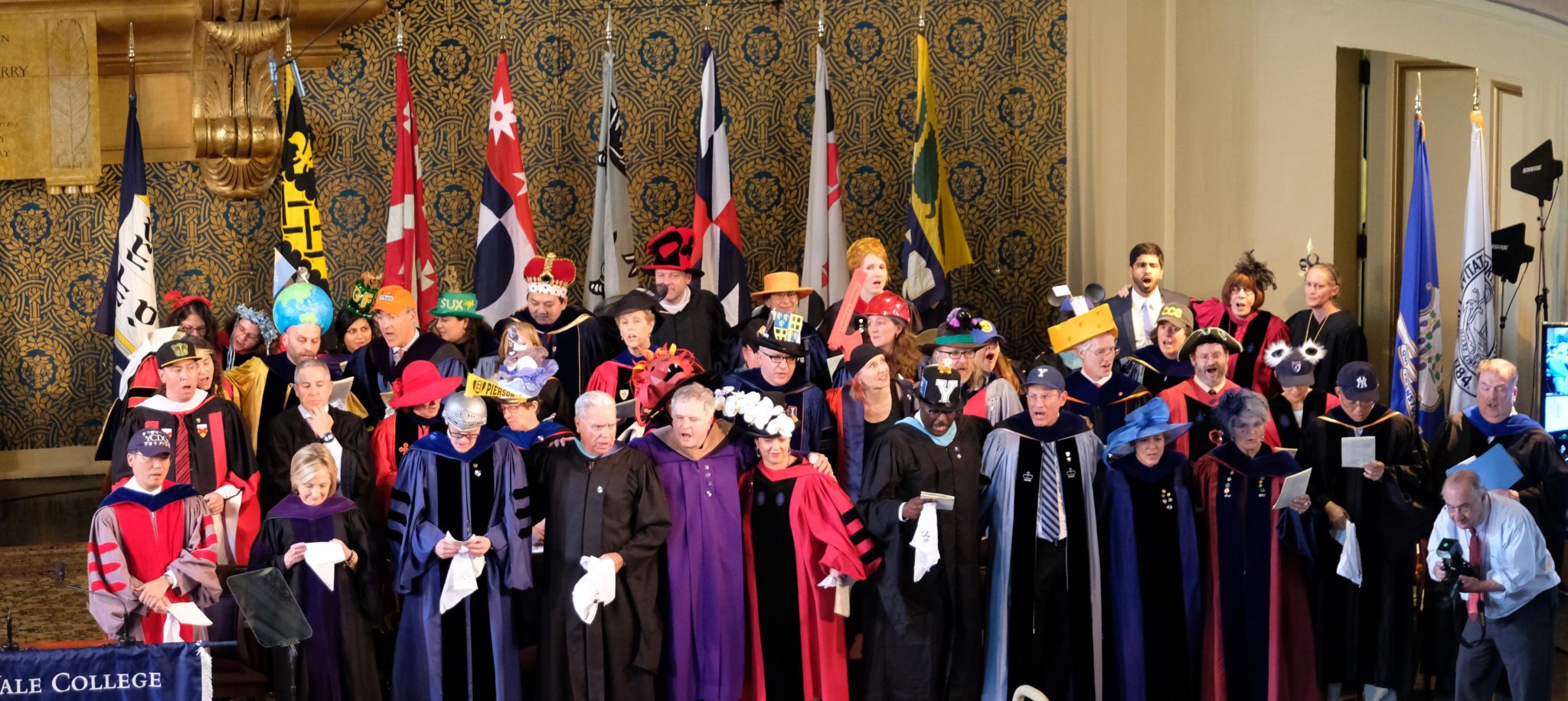
Eric Wang
Two months after the University announced that an additional $24 million was to be allocated to faculty recruitment and retainment, faculty members remain uncertain how exactly that money will be used to improve faculty excellence.
So far this academic year, the University has announced that a total of $50 million over the next five years is to be dedicated to “faculty excellence.” The first $26 million investment was announced in September, and University President Peter Salovey and Provost Ben Polak announced in December that an additional $24 million will be tacked on to the previous sum in response to “interest and excitement” prompted by the original initiative. The money will in part be devoted to targeted salary adjustments in the Faculty of Arts and Sciences as well as to make competitive offers for “transformative faculty members.”
The announcements came amid calls for increasing resource dedication to the FAS and salaries of FAS faculty members. In interviews with the News, faculty members spoke favorably of funds being allocated for FAS development, but many said they were still in the dark about exactly how the money would be spent to help the FAS. Many professors expressed their desire for increased salaries for existing and incoming faculty members, and others called for investment in the city of New Haven itself.
According to Dean of the Faculty of Arts and Sciences Tamar Gendler, the University will invest the money from the initiative into current faculty and faculty recruitment.
“Some of these resources will be devoted to our existing outstanding faculty,” Gendler said. “An additional segment of the resources has been dedicated to a universitywide fund to help recruit transformative faculty to our campus: scholars who redefine the horizons of understanding by not only answering the key questions of their disciplines, but by changing the questions that we are in a position to ask.”
Gendler said that some of the money had already been put toward salary adjustments made in January for faculty members in three categories — departmentwide adjustments for tenured faculty members in departments where the department as a whole was out of range with peer departments; specific salary adjustments for certain tenured faculty members in departments where upper-quartile salaries did not match the corresponding salary range of peer departments whose salaries were lower than those of professors at peer institutions; and adjustments for certain recently tenured faculty to bring them more in line with their departmental peers at the University.
Still, some faculty members said that there remains ambiguity on where exactly the money would go over the next five years.
Economics professor Costas Meghir said that keeping in line with the salaries of competitors “is extremely important.”
“The fact is, if you don’t have competitive salary structure, it’s very hard to attract the top people you want to attract, and it’s hard to retain those already here,” Costas said. “We mustn’t underestimate the importance of salary in addition to the many benefits that Yale has to offer.”
Sociology professor Jeffrey Alexander called the announcement of extra resource dedication “an admission of failure” on Yale’s part, considering that the University has always advertised itself as having a “policy to recruit the best faculty.” He added that the University did not need “a super-fund” but rather “a permanent change in sensibility and allocation.”
Economics professor Mushfiq Mobarak added that the investment would have to be sustained in order to create change within the University.
“It’s not going to happen in one or two years or five years, but in the long run,” Mobarak said, “I think it matters. I think money matters. … If there is more resources that are earmarked for the purposes of recruiting that is going to help on the margin.”
Gendler said recruiting and retaining an excellent faculty is a top priority of Yale’s president and provost. She added that she believes Yale is in a position to attract and support “the very best faculty in the world — both through this strong initial response, and through ensuring that we are in a long-term position.”
Other professors said that the lack of opportunities for spouses could pose an issue for recruiting faculty members to the University. According to economics professor Michael Peters, he has seen faculty candidates choose other universities that “are not of the same academic caliber as Yale” but are located in metropolitan areas with more opportunities for spouses to find work. He said this has been the biggest long-term challenge in recruiting young faculty members.
Mobarak said that Yale could invest in the infrastructure of New Haven and Connecticut in general in order to improve faculty accessibility to larger cities such as New York.
“A better train link to N.Y. would also make a difference, although that is out of Yale’s control,” said political science professor Steven Smith. “I also think — this is also outside the box — that if Yale bought an apartment building in N.Y. that could be used for faculty with the need to live in the city or those who would like to spend a semester or so there, this would be a huge benefit to faculty recruitment.”
Gendler said that Yale invests in New Haven and Connecticut through the University’s Office of New Haven and State Affairs.
Carly Wanna | carly.wanna@yale.edu







